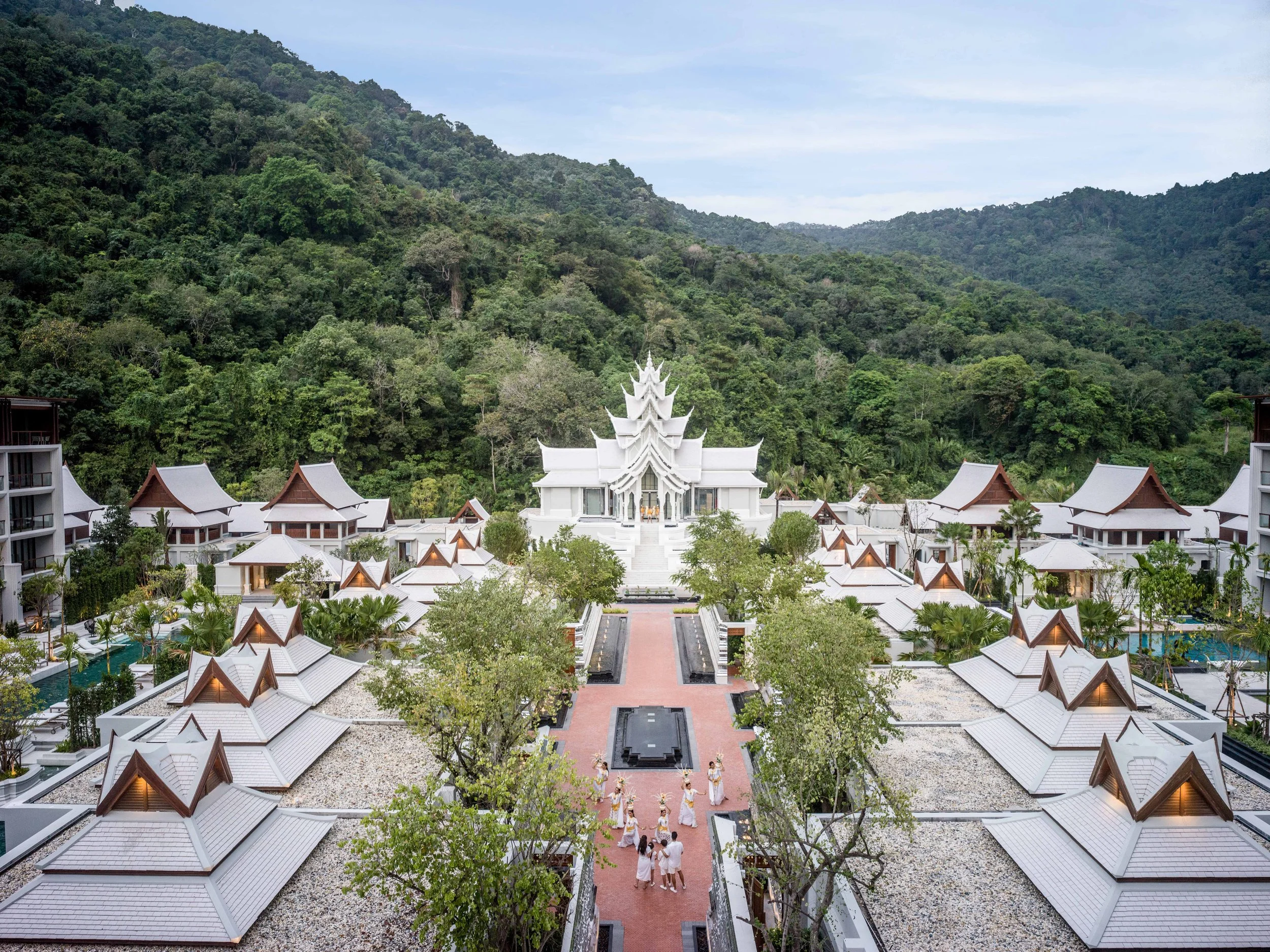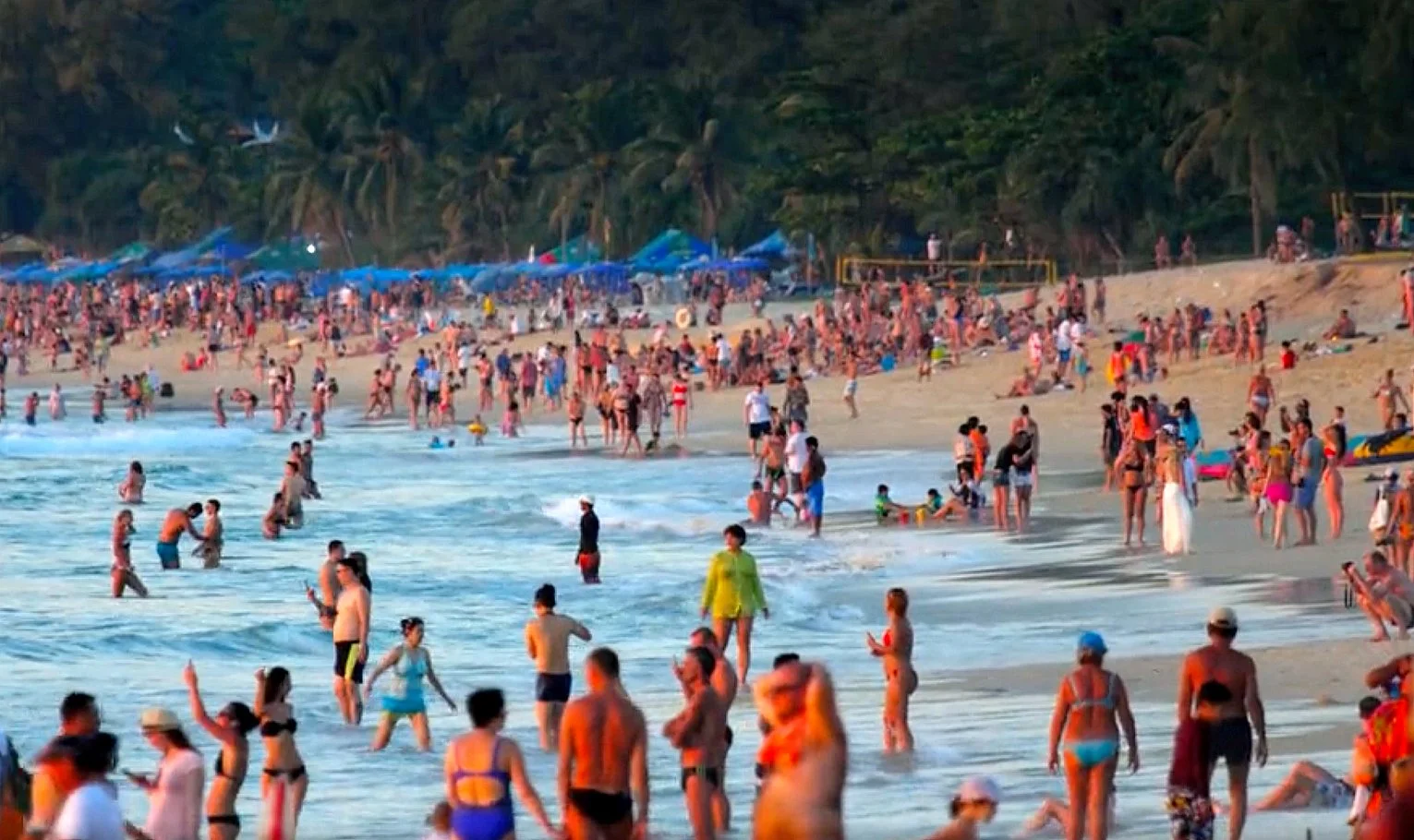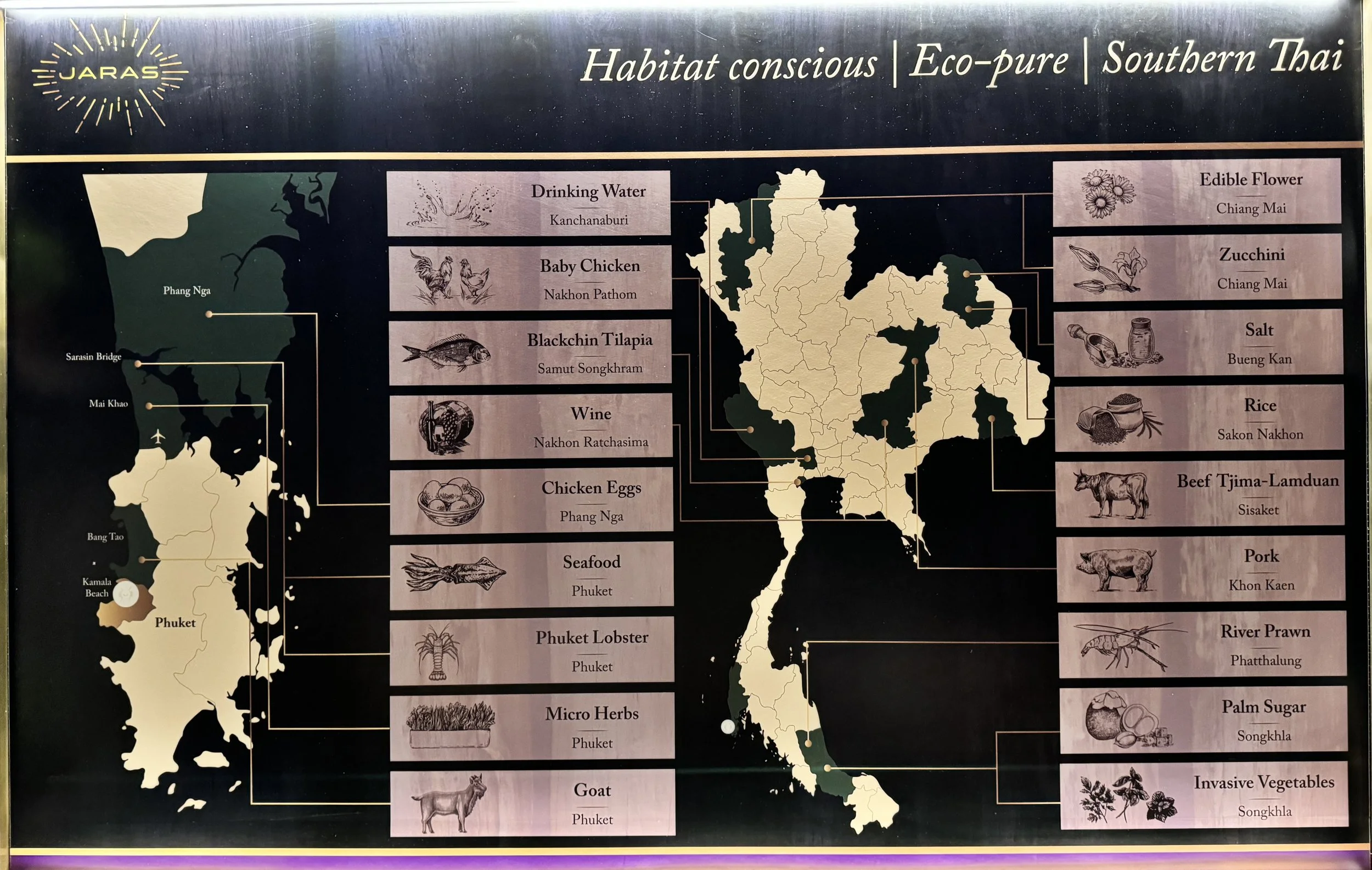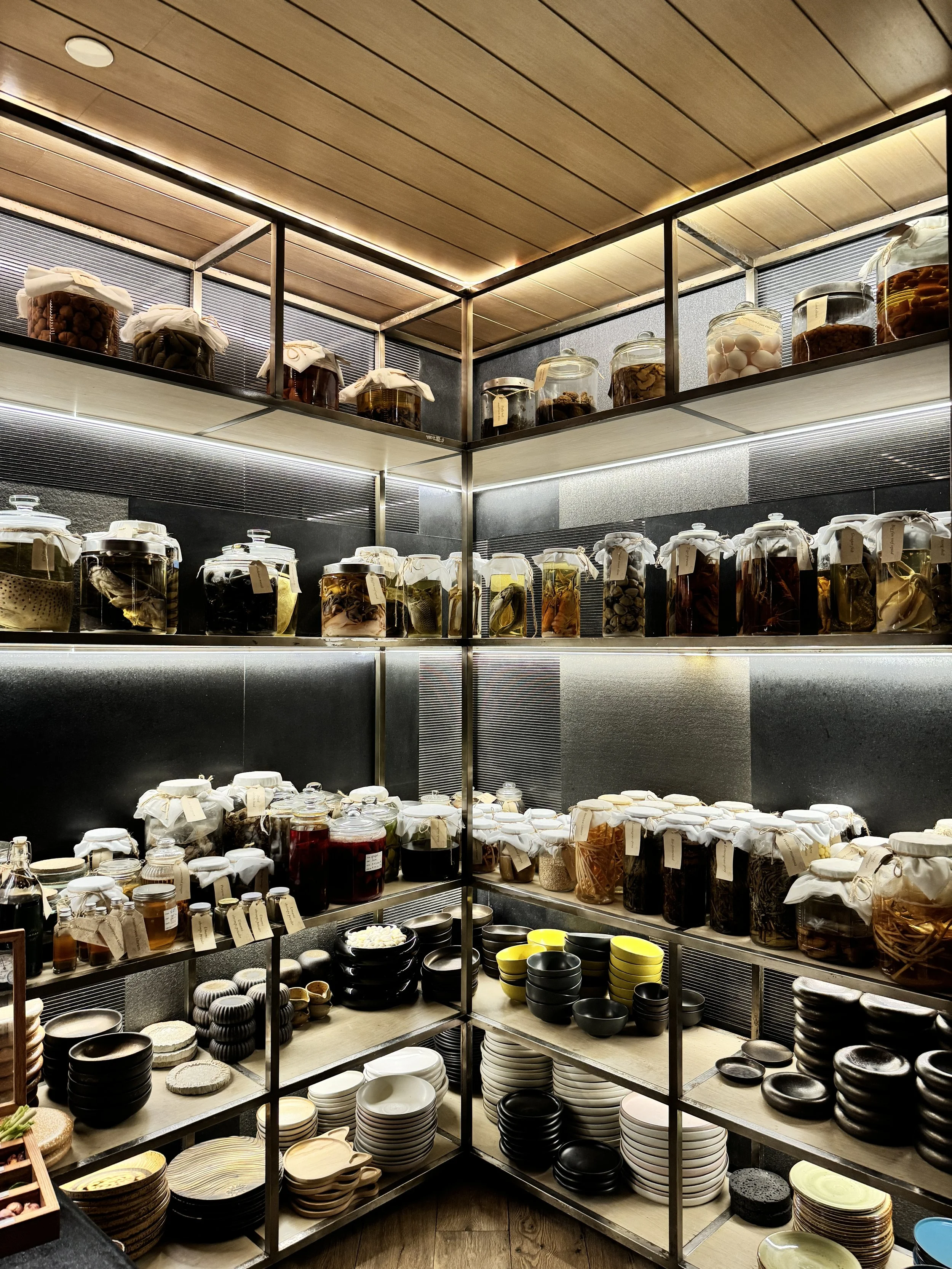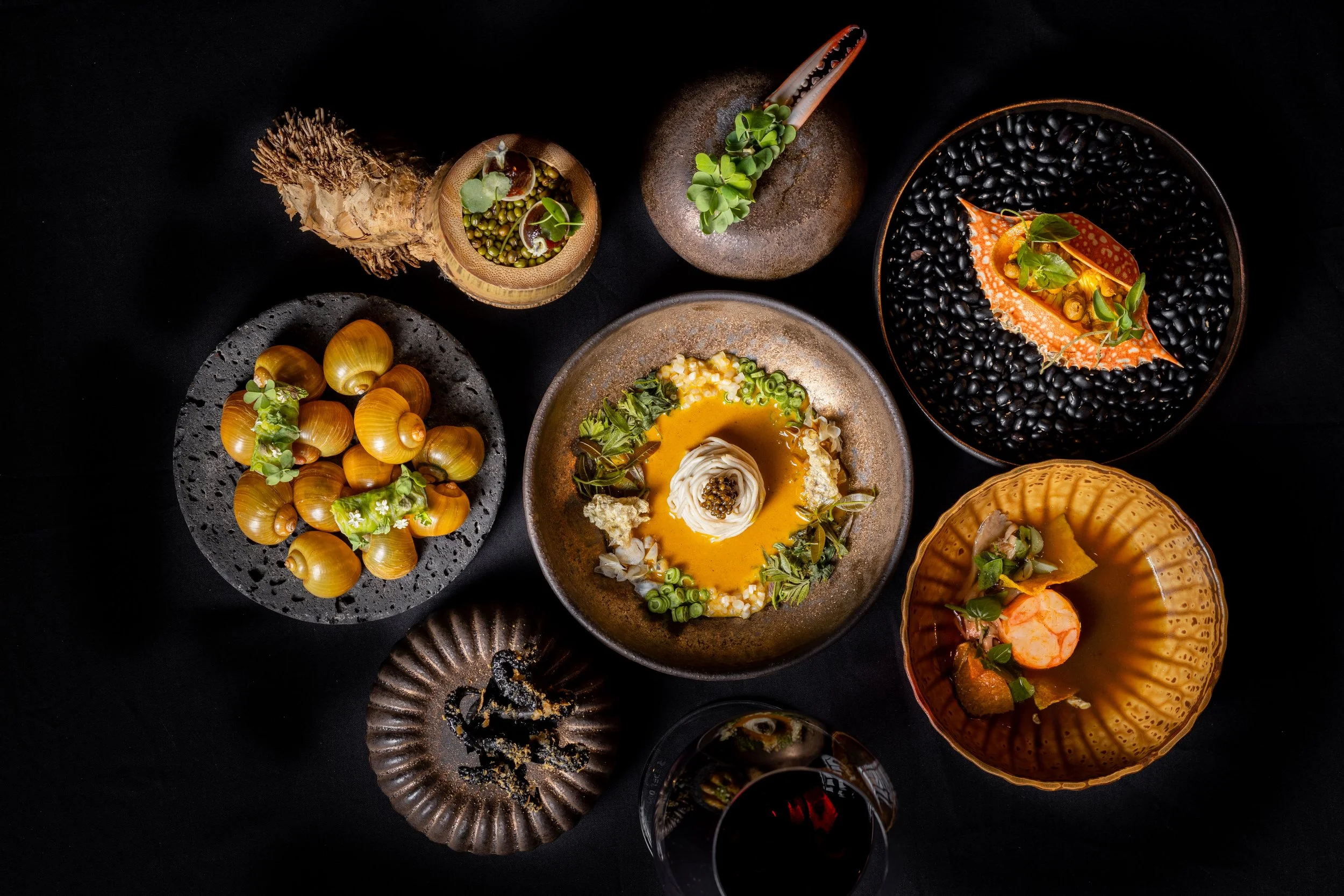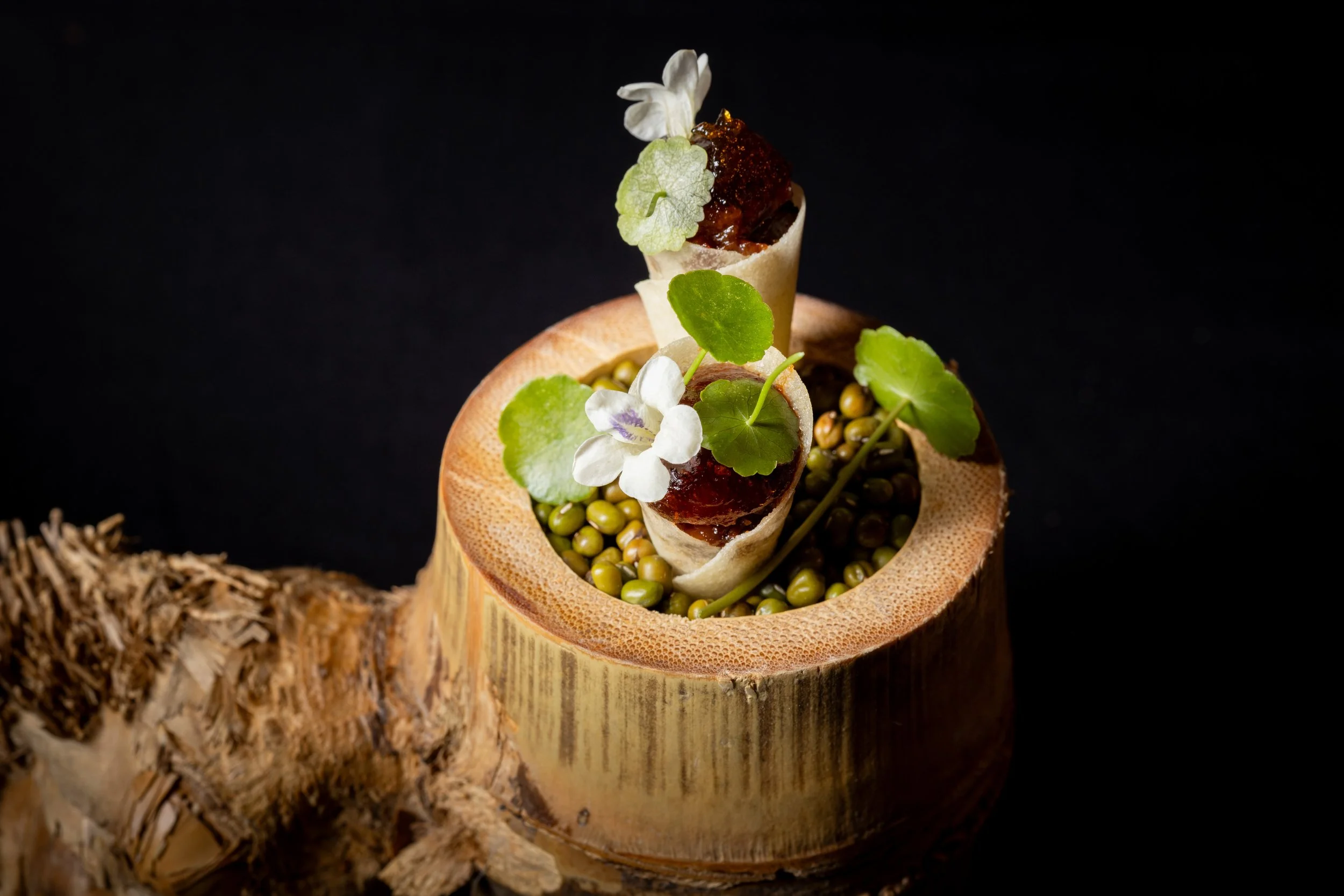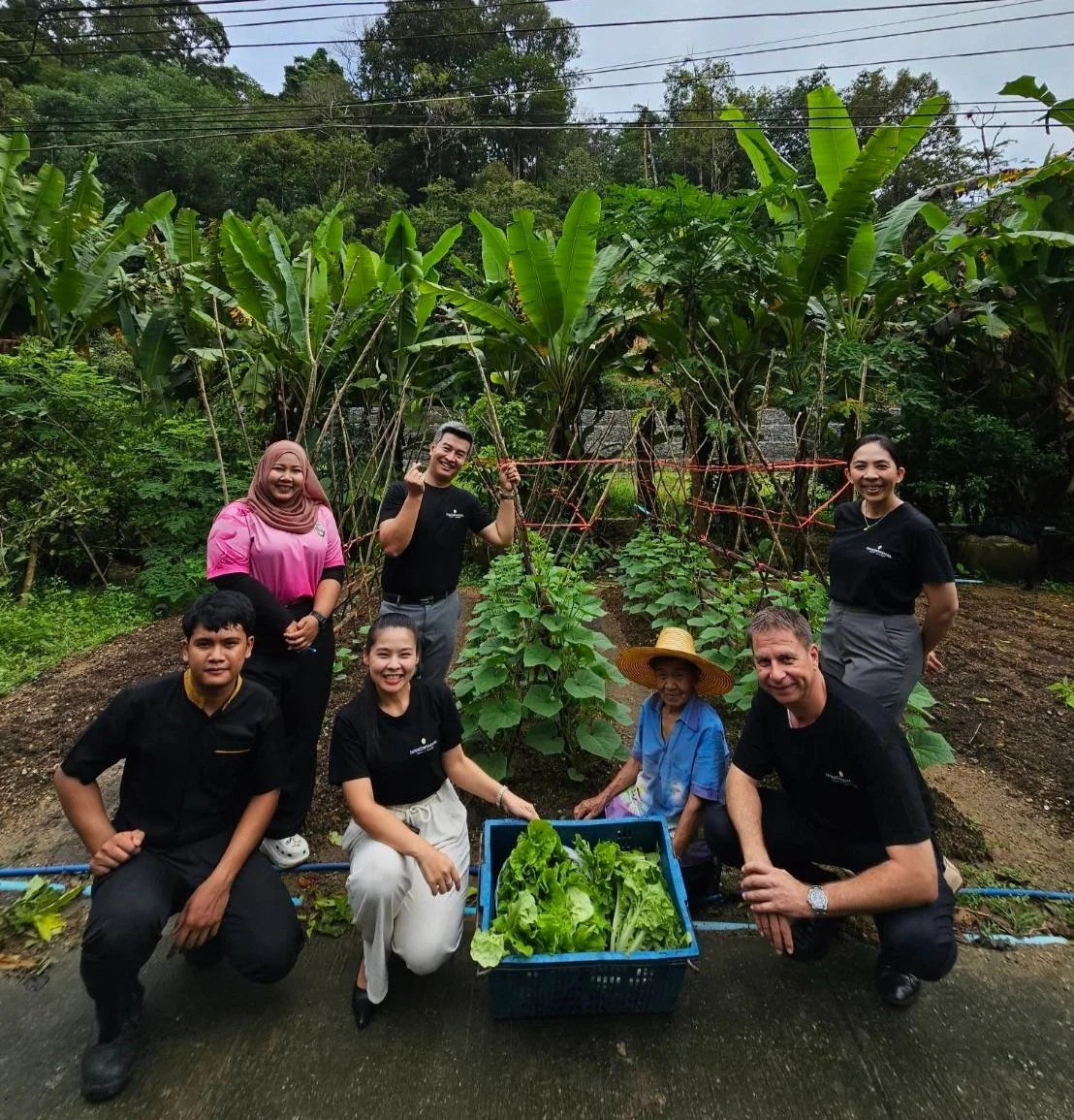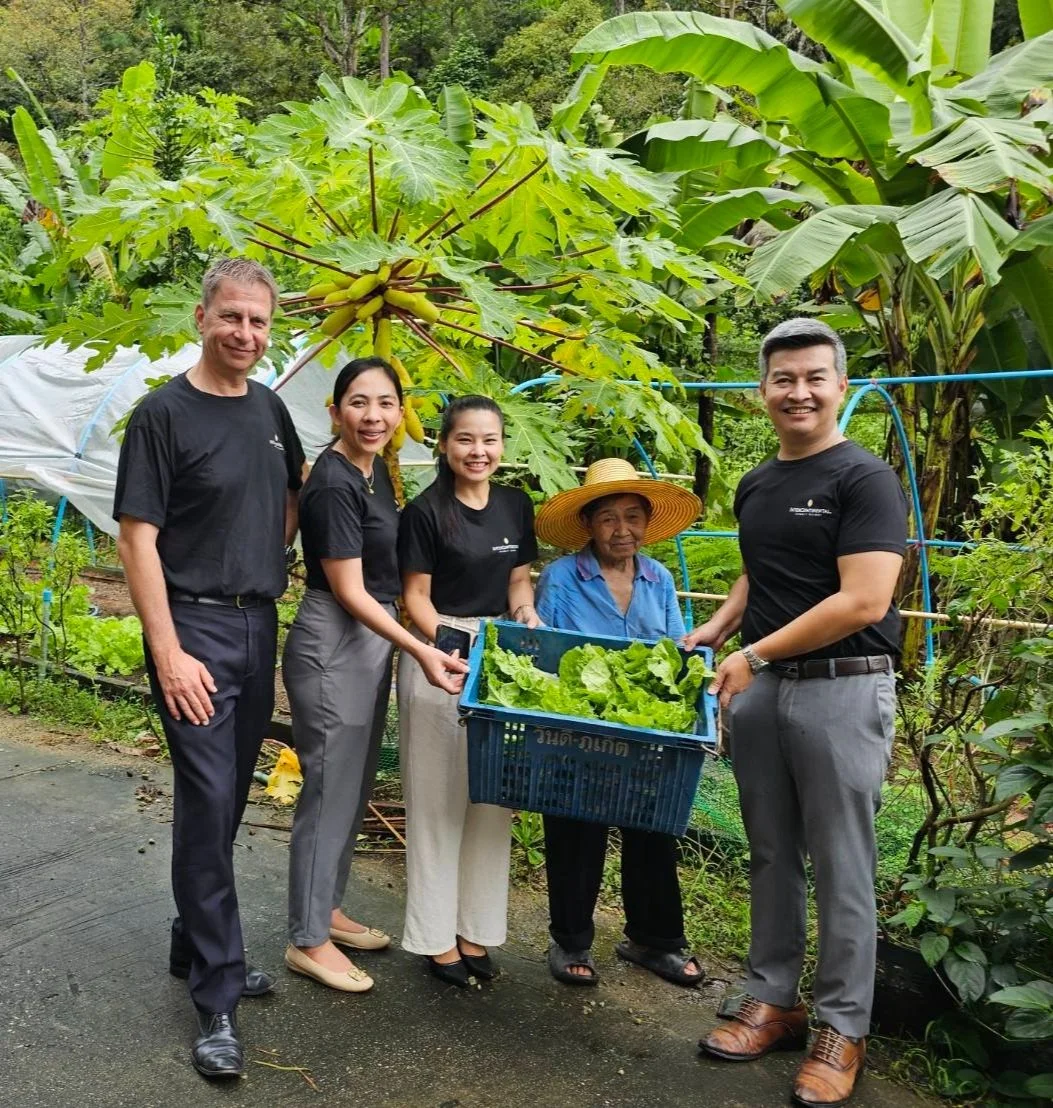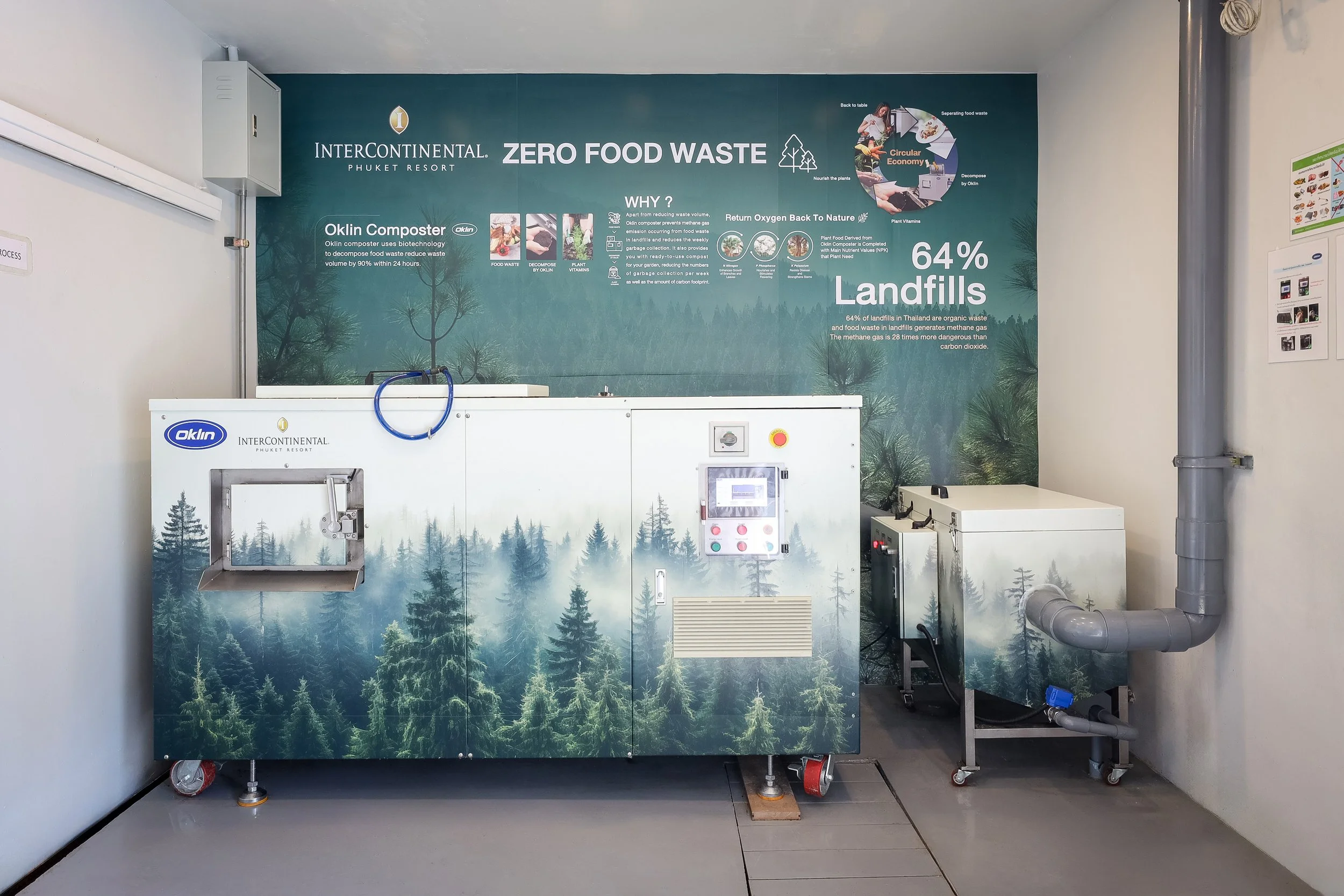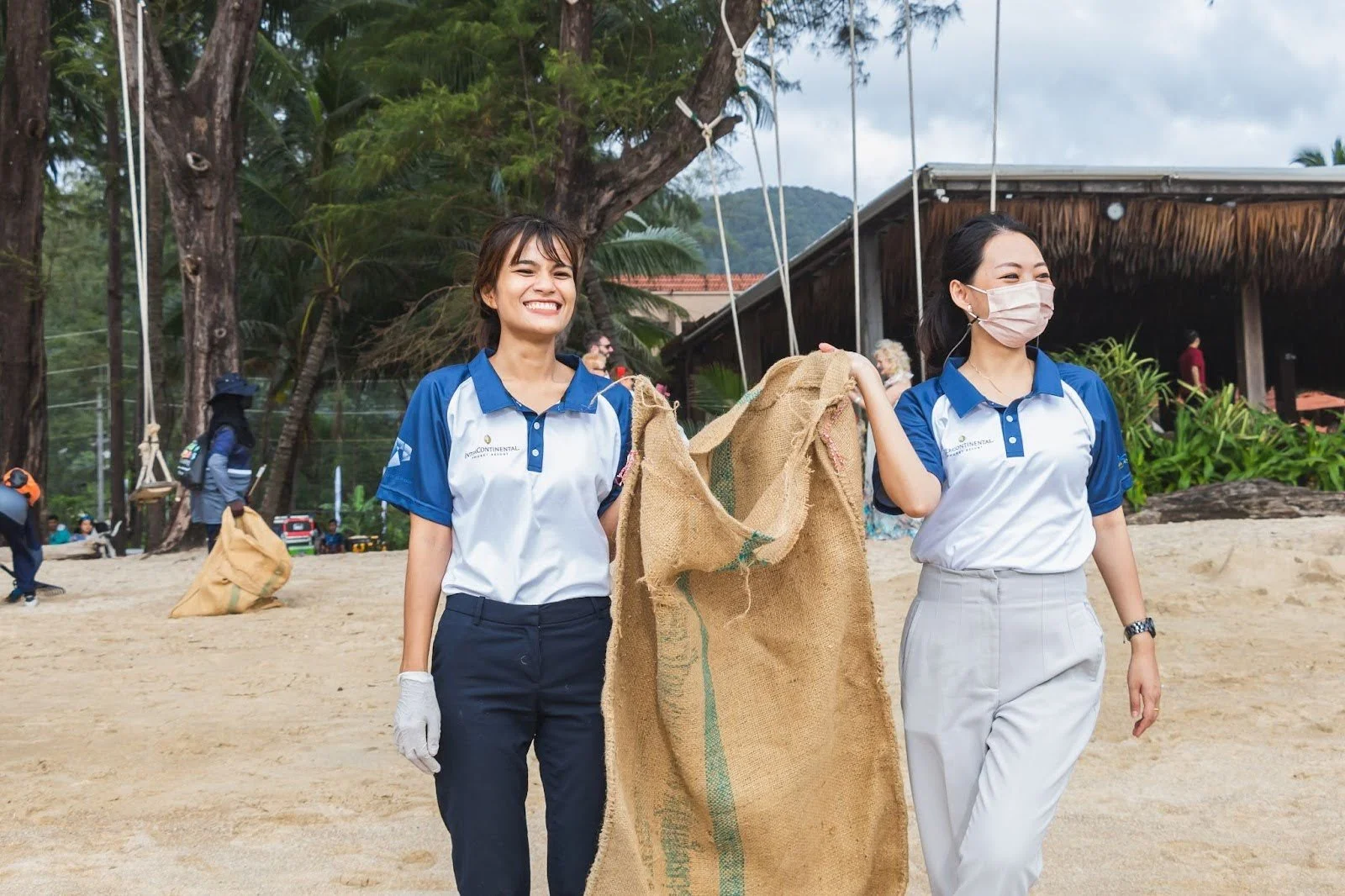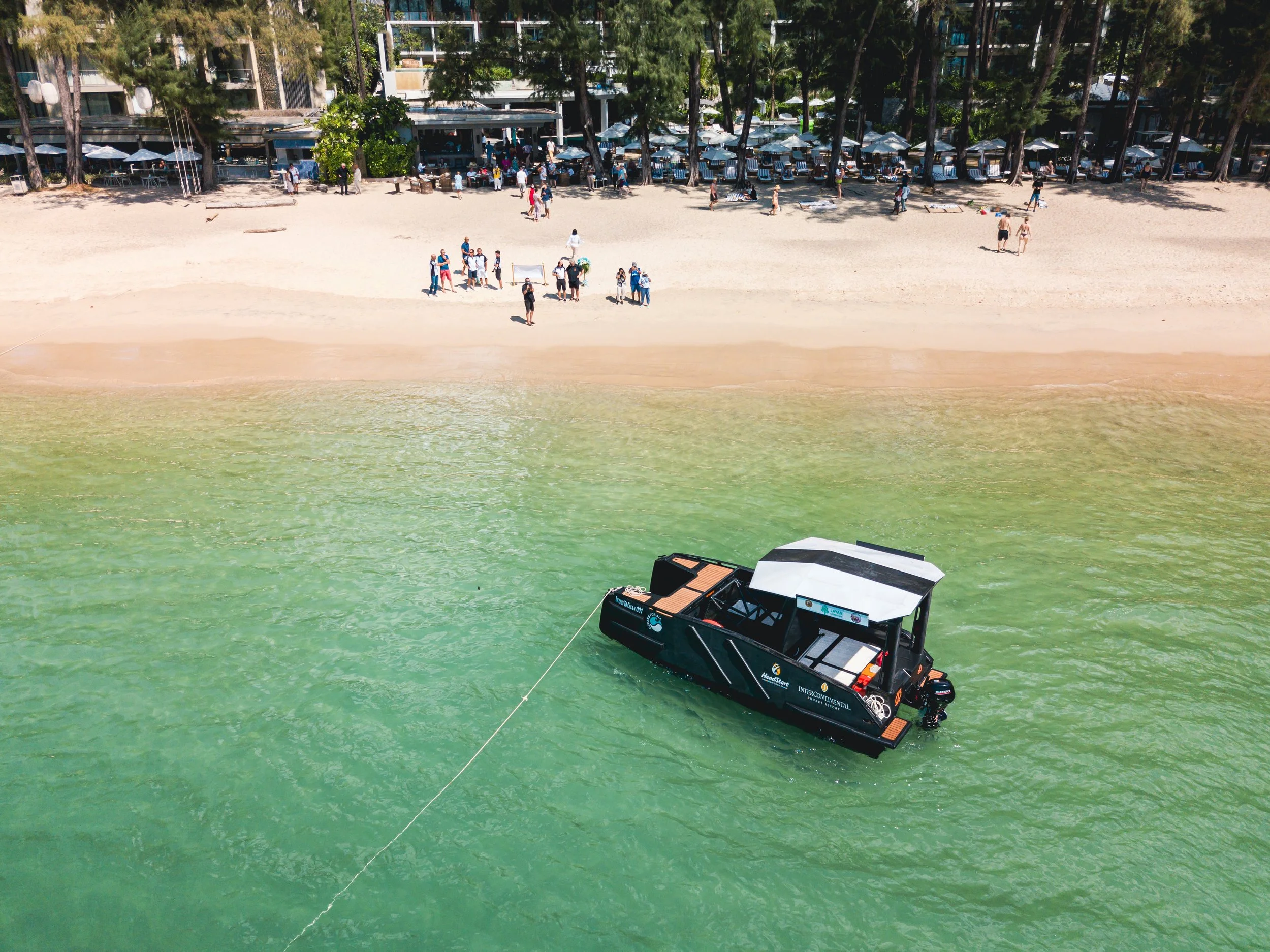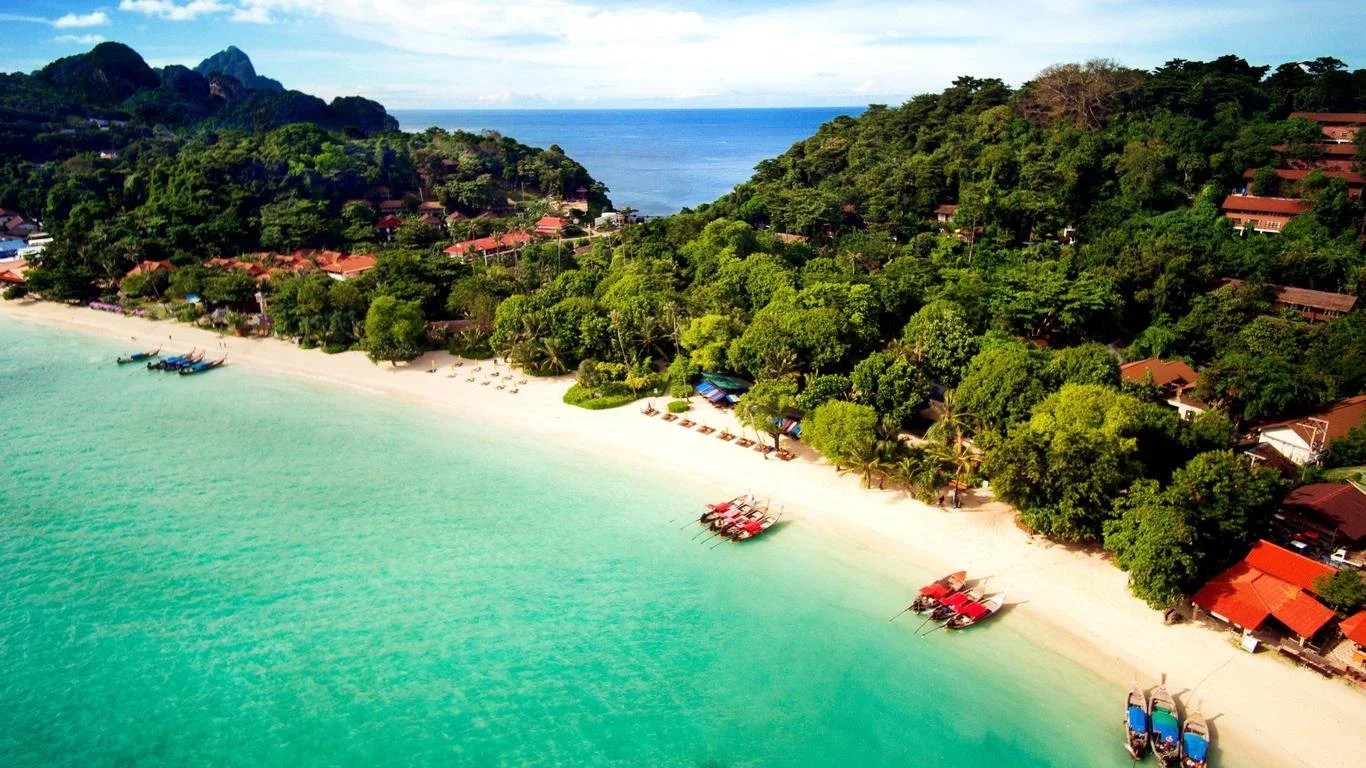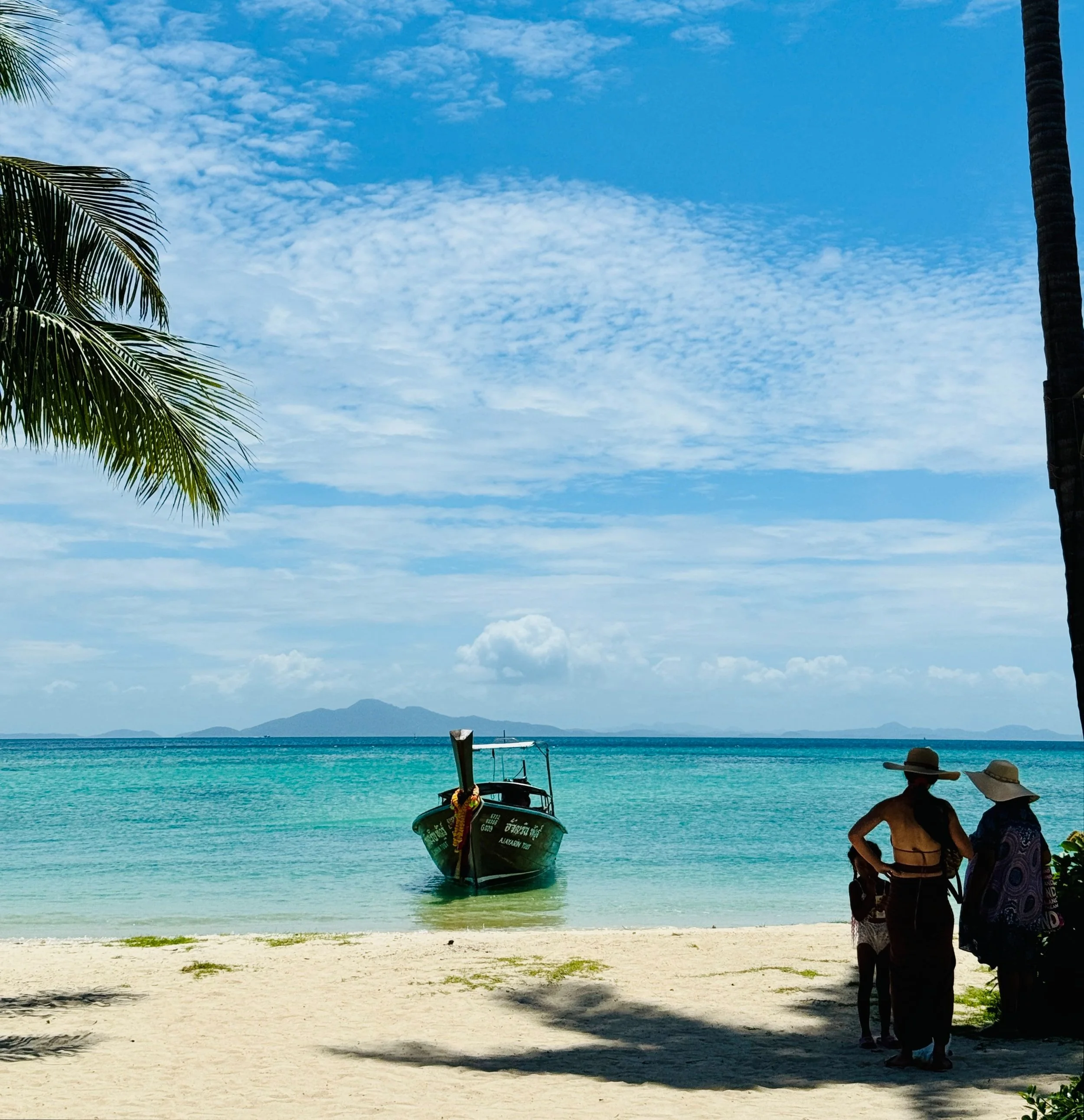Thailand’s Tourism at a Crossroads: Can Sustainability Shape its Future?
Photo by: InterContinental Phuket Resort
Thailand is more than just a travel destination. It’s the beating heart of Asia’s tourism industry. With nearly 40 million visitors in 2023 alone, the country stands as the region’s top tourist draw.
After the pandemic brought global travel to a standstill, Thailand has been bouncing back and fast. In 2023, the country’s tourism sector surged, contributing an estimated 17-18% to its GDP, according to the World Travel & Tourism Council (WTTC). The World Bank expects this resurgence to fuel Thailand’s economic recovery through 2024.
But as Thailand aims to accelerate its recovery through casino tourism to cannabis tourism, questions loom: Is there another way forward? Can this mass tourism model be the way forward?
Amid growing concerns about the effects of climate change, biodiversity loss, and cultural disruption, can Thailand harness its tourism success while also setting a new standard for sustainable, responsible travel? Will this model pay off? If so, in what ways?
In our special series, Thailand’s Best-Kept Sustainable Travel Stories, we uncover hidden gems, businesses, and communities leading the charge toward a more conscious tourism model. From Phuket’s idyllic beaches to the bustling streets of Bangkok, we’ll explore how sustainability can redefine travel in Thailand.
Phuket: Where Mass Tourism and Sustainable Innovation Collide
Phuket exemplifies the duality of Thailand’s tourism evolution, capturing both the pitfalls of mass tourism and the promise of sustainable travel.
For years, Phuket has been synonymous with mass tourism — a model that has led to overcrowding, environmental degradation, and immense pressure on local communities and resources.
Photo by: Vecteezy
In response to these challenges, a growing number of hospitality businesses in Phuket are driving efforts toward a more sustainable future.
A pivotal force behind this movement is the Phuket Hotels Association, which has propelled the Phuket Hotels for Islands Sustaining Tourism (PHIST) event into Southeast Asia’s largest sustainable tourism learning platform in the past eight years.
Asia Sustainable Travel recently hosted its AST Forum at PHIST in September. You can read more about the key highlights here.
During our visit to Phuket, we met with Bjorn Courage, the President of the Phuket Hotels Association, who also serves as General Manager of the InterContinental Phuket Resort.
The property has become a beacon of responsible hospitality in an industry often associated with excess. From circular water systems to zero-waste kitchens, their initiatives stand out, not just in Phuket, but across the InterContinental brand globally.
When I asked about the resort’s impact on the InterContinental brand, Marketing Director Tipaxsorn Nampetch, fondly known as Nikki, shared, “I hope what we’re achieving here in Phuket is pushing the corporate brand to rethink what it means to offer conscious luxury.”
She added, “We aim to be a model for other hotels in Phuket and Thailand, demonstrating that hospitality can be socially inclusive and environmentally responsible without compromising its financial ambition.”
InterContinental Phuket Resort: Redefining Luxury with Purpose
From Ethical Food Sourcing and Innovative Cooking to Closing the Close Loop
Jaras: Championing Zero-Waste Cooking while Turning Invasive Species into Fine Dining Ingredients
The resort’s restaurant, Jaras, prioritizes waste reduction through thoughtful cooking and sourcing practices, ensuring every part of an ingredient is utilized. Leftovers are creatively repurposed to minimize food waste, showing that sustainable dining is achievable without sacrificing quality. For example, fermentation and upcycling give leftover ingredients a second purpose, such as transforming fish bones into flavorful powders or creating prawn oil from excess prawn heads and shells.
Photo by: Vecteezy
Thailand’s biodiversity faces threats from invasive species that harm the indigenous ecosystems and agriculture. The resort has partnered with WWF-Thailand to identify the potential of invasive flora and fauna, with the Alternative Agriculture Network (AAN) providing recommendations on their ‘ethnobotanical’ application as fine dining ingredients.
Photos by: InterContinental Phuket Resort
Empowering Local Food Producers with Direct Trade
Jaras sources ingredients from 19 local farms and fisheries, ensuring fresh, seasonal produce while supporting the local economy. Strong relationships with local farmers and fishermen ensure a steady supply of ethically sourced, high-quality ingredients.
Photos by: InterContinental Phuket Resort
Closing the Food Waste Loop
Despite efforts to minimize waste, the resort still processes nearly 2,500 kg of surplus food each month. Using the Oklin composter, 750 kg of organic fertilizer is produced for local farms and the resort’s gardens. While not all excess is repurposed, this closed-loop system cuts landfill contributions and methane emissions.
Photo by: InterContinental Phuket Resort
Protecting the Immediate Environmental Assets
Like many island destinations, Phuket grapples with plastic pollution. At AST Forum Phuket, we held a panel discussion focusing on smart upstream and downstream management strategies to tackle this crisis head-on.
InterContinental Phuket’s commitment to eliminating plastic waste is evident in its shift to eco-friendly alternatives for operational materials and guest amenities.
Drinking water is served in glass bottles, filled on-site at the resort’s water plant. It is worth noting that the resort was the first in Phuket to introduce RFID-enabled wooden room keycards, offering a green alternative to plastic keycards.
The hotel’s environmental initiatives go beyond the confines of its walls. The USD$35,000 ‘Proud Kamala’ initiative, funded entirely by InterContinental Phuket Resort, employs 5 people to keep clean the entire 2.5km stretch of Kamala beach, with all trash collected being fully recycled.
Additionally, the resort, in collaboration with the Ocean For All foundation, also introduced “License to Clean 101” that uses a Phuket-built recycled-plastic catamaran to collect debris from the sea daily.
Photos by: InterContinental Phuket Resort
Progress over Perfection: Energy and Water Efficiency
This LEED® Gold-certified property maximizes the all-year tropical climate and has a completely open-air and non-air-conditioned lobby. Other buildings are equipped with effective windows and low-energy roof and wall insulation, aiming for 24-30% energy savings.
To reduce runoff impact on marine ecosystems, the resort harvests rainwater which is then stored in underground tanks, treated, and then used to flush toilets and urinals. By using low-flow fixtures, the resort cuts water consumption by 50% annually. Additionally, all wastewater is treated and recycled, with 100% of the reclaimed water used for irrigating gardens and landscaped areas.
Bringing People Together to Lift Them Up
At the resort, sustainability awareness extends to even its youngest guests through the thoughtfully designed Kid’s Educational Program. This 60-minute eco-adventure for children aged 4 to 12, offers hands-on learning experiences that nurture a sense of environmental responsibility. A highlight of the program is a visit to the “License to Clean 001” catamaran, where each child leaves with a handcrafted recycled keychain, a lasting reminder of what they learn at the property.
Furthering its commitment to the local community, the resort has partnered with Scholars of Sustenance Thailand (SOS) to address food insecurity in its proximity. On World Food Day, the resort prepares and distributes 500 meal boxes to the Kamala village community.
During my dinner at Jaras, I was struck by a conversation with my server, who shared her story of securing employment at the resort after hearing from friends that it was one of the best places to work on the island.
When I asked if it lived up to her expectations, she smiled and said with pride, “I’m treated very well here.”
For the next installment of Thailand’s Best-Kept Sustainable Travel Stories, we journey south to Koh Phi Phi to explore the overtourism and environmental challenges faced by the famed Maya Bay.
Considered as the crown jewel of Southern Thailand, Maya Bay became emblematic of overtourism’s destructive impact. Years of unchecked visitor numbers and insufficient management led to severe environmental degradation, resulting in widespread coral bleaching.
Recognizing the urgent need for ecological rehabilitation, the Thai government took decisive action by closing Maya Bay in 2018. The closure took place again, most recently 1 August to 31 September 2024, to allow the ecosystem to recover. Encouraging signs of regeneration are now visible, with marine life slowly returning and coral reefs beginning to heal.
To gain deeper insights into these recovery efforts, I visited Zeavola and SAii Phi Phi Village Resort on Koh Phi Phi. These properties have implemented various initiatives aimed at adapting to the visible effects of climate change in the region. At SAii Phi Phi Village Resort, the Marine Center operates as a research hub, working to restore marine ecosystems and educate visitors on the importance of conservation.
These initiatives reflect a broader trend within the hospitality industry, where businesses are increasingly taking responsibility for environmental stewardship and supporting long-term sustainability, in vulnerable environments such as Koh Phi Phi for future generations.
Sign up for the weekly AST Briefing to receive the story directly in your inbox.
Photos by: (L) Zeavola, (R) Jeremy Tran


